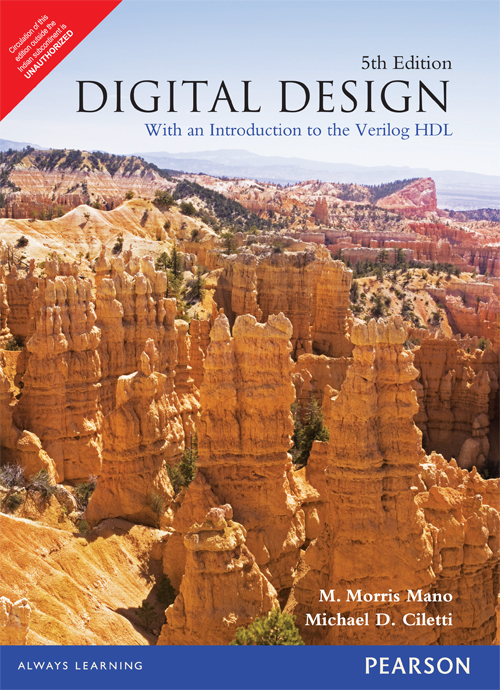CSCI 1510: Logic Design
Fall 2015 - Section 003
Department of Computer Science and Engineering
College of Engineering and Applied Sciences
University of Colorado Denver
| Instructor: Manh Huynh | Term: Fall 2015 |
| Office: Lawrence St Center, LW-822 | Class Meeting Days: Monday / Wednesday |
| E-Mail: huynh.manh {at} ucdenver {dot} edu | Class Meeting Hours: 3:30[pm] - 4:45[pm] |
| Office Day: Tuesday / Thursday | Class Location: Lawrence St Center: LW-840 |
| Office Hours: 03:00[pm] - 04:45[pm] | Website: http://cse.ucdenver.edu/~manhhuynh/ |
![]()
COURSE OVERVIEW:
I. Catalog Course Description:
The design and analysis of combinational and sequential logic circuits. Topics include binary and hexadecimal number systems, Boolean algebra and Boolean function minimization, and algorithmic state machines. Lecture/lab includes experiments with computer-aided design tools. This course requires the level of mathematicalmaturity of students ready for Calculus I. Max hours: 3 Credits
II. Expected Knowledge at the Start of the Course:
+ Knowledge/completion of Algebra I course: number systems, numbering properties (distributive, commutative, etc.), and number types
+ Knowledge of computer programming techniques is strongly recommended, but not
required.
III. Expected Knowledge at Course Completion:
+ Able to convert from/to binary and hexadecimal numbers.
+ Ability to read/understand basic combinational and sequential logic diagrams.
+ Familiarity with computer aided design tools.
+ Familiarity with the design and implementation of Algorithmic state machines.
IV. ABET Assessment Criteria:
(a) An ability to apply knowledge of computing and mathematics appropriate to the discipline
V. Textbook:
Digital Design: With an Introduction to the Verilog HDL,
M. Morris Mano,Michael D. Ciletti, ISBN: 9780132774208.

V. OrCAD 16.6 Lite (Capture & PSpice Only):
+ OrCAD 16.6 Lite (Capture & PSpice) is used for our lab experiment. Note that Capture is used for designing circuit, while PSpice for simulation.+ To obtain most up-to-date version go to the OrCAD Downloads page on the Cadence website and download the OrCAD 16.6 Lite Demo Software (Capture & PSpice only). Note that you will be asked to provide your name and some other information and they will send you a confirming email.
+ The OrCAD server is sometimes down. You can download a zip file here. Version 16.6
VI. Course Outline:
<| Week | Day | Topic | Reading | Assignment |
|---|---|---|---|---|
1 |
M 8/17 |
Introduction/Chapter 1 |
Ch1 |
|
| W 8/19 | Chapter 1 | Ch1 | ||
2 |
M 8/24 |
Chapter 1/Lab 1 |
Ch 1 |
|
| W 8/26 | Lab 1 | |||
| 3 | M 8/31 |
Chapter 2/Quiz |
Ch 2 |
|
| W 9/2 | Chapter 2 | Ch 2 | Hwk 1 /Lab 1 Due | |
| 4 | M 9/7 |
Labor Day - No School |
||
| W9/9 | Lab 2 | Hwk 2 Due | ||
| 5 | M 9/14 |
Chapter 3/Quiz |
Ch 3 |
|
| W 9/16 | Chapter 3 | Ch 3 | Lab 2 Due | |
| 6 | M 9/21 |
Chapter 3/Lab 3 |
Ch 3 | |
| W 9/23 | Lab 3 | Hwk 3 Due | ||
| 7 | M 9/28 |
Review |
||
| W 9/30 | Test 1 Chapters 1-3 | |||
| 8 | M 10/5 |
Chapter 4 |
Ch 4 |
Lab 3 Due |
| W 10/7 | Chapter 4 | Ch 4 | ||
| 9 | M 10/12 |
Chapter 4/Lab 4 |
Ch 4 | |
| W 10/14 | Lab 4 | |||
| 10 | M 10/17 |
Chapter 5/Quiz |
Ch 5 |
Hwk 4 Due |
| W 10/19 | Chapter 5 | Ch 5 | ||
| 11 | M 10/26 |
Chapter 5/Lab 5 |
Lab 4 Due | |
| W 10/28 | Lab 5 | Ch 6 | ||
| 12 | M 11/2 |
Chapter 6/Quiz |
Ch 6 |
Hwk 5 Due |
| W 11/4 | Chapter 6 | Ch 6 | ||
| 13 | M 11/9 |
Lab 6 |
Lab 5 Due | |
| W 11/11 | Lab 6 | Ch 7 | Hwk 6 Due | |
| 14 | M 11/16 |
Chapter 7/Quiz |
Ch 7 | |
| W 11/18 | Chapter 7 | |||
| 15 | M 11/23 | THANKS GIVING BREAK |
||
| M 11/25 | ||||
| 16 | M 11/30 | Review | Lab 6/ Hwk 7 Due | |
| W12/2 | Test 2 - Cummulative | |||
| 17 | Dec 7-12 | FINALS WEEK |
VI. Grading Policy:
Your grade will be composed of the following items:
+ Attendance/Participation/Quizzes: 10%
+ Homework: 25%
+ Labs: 25%
+ Test 1: 20%
+ Test 2: 20%
Your letter grade for the course will be computed as follows:
[90-100] = A
[80-90) = B
[70-80) = C
[60-70) = D
[0-60) = F
NOTE :
1. Active Study (attending class, asking questions, ect) will get plus points at the end of the course. Remember I not only evaluate on your grades but also on how you make progress.
2. Late homework will only be accepted if you show acceptable reasons.
3. Violations of the Student Honor Code will not be tolerated.
4. MUST show your work.
GOOD LUCK AND ENJOY THE CLASS